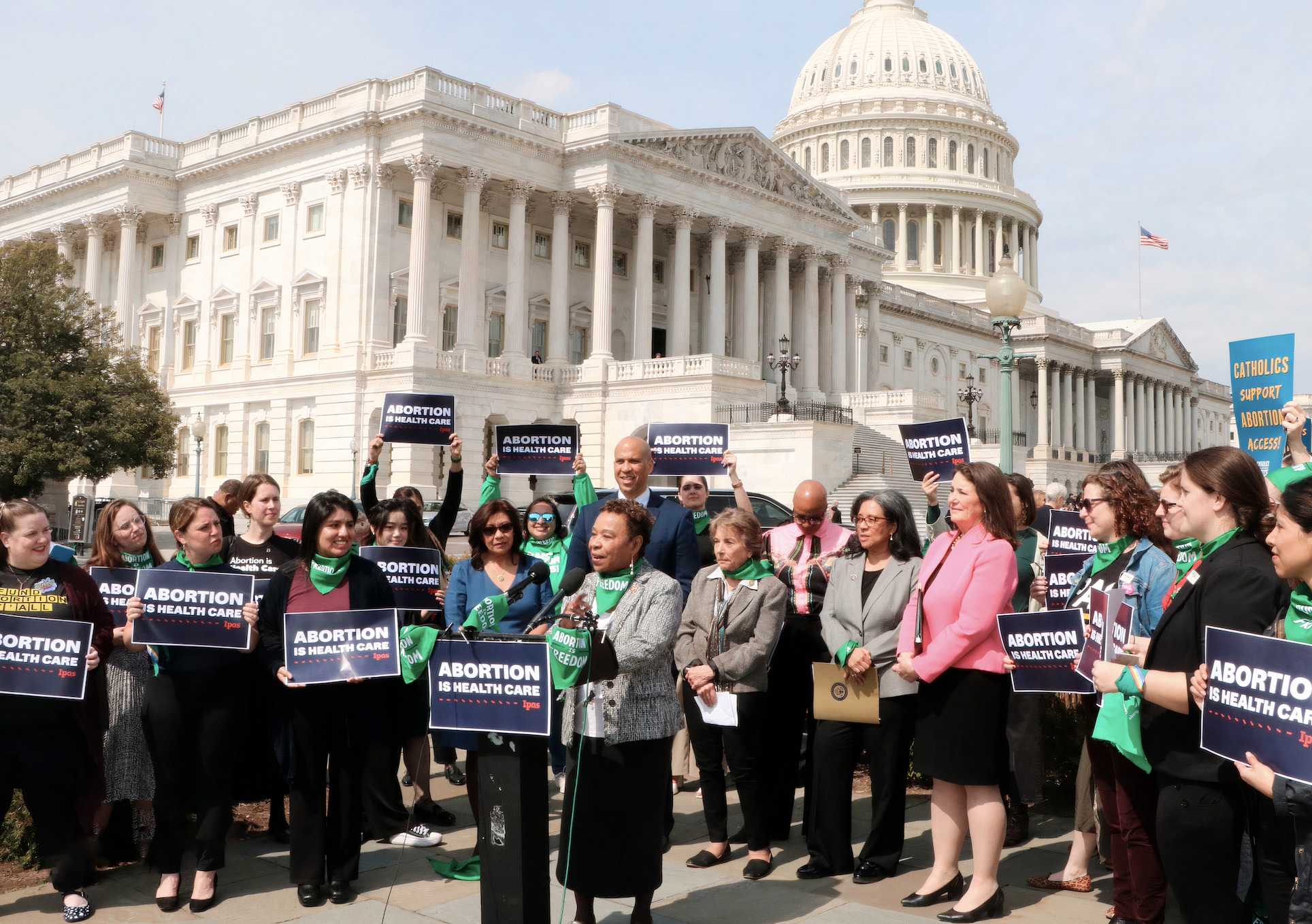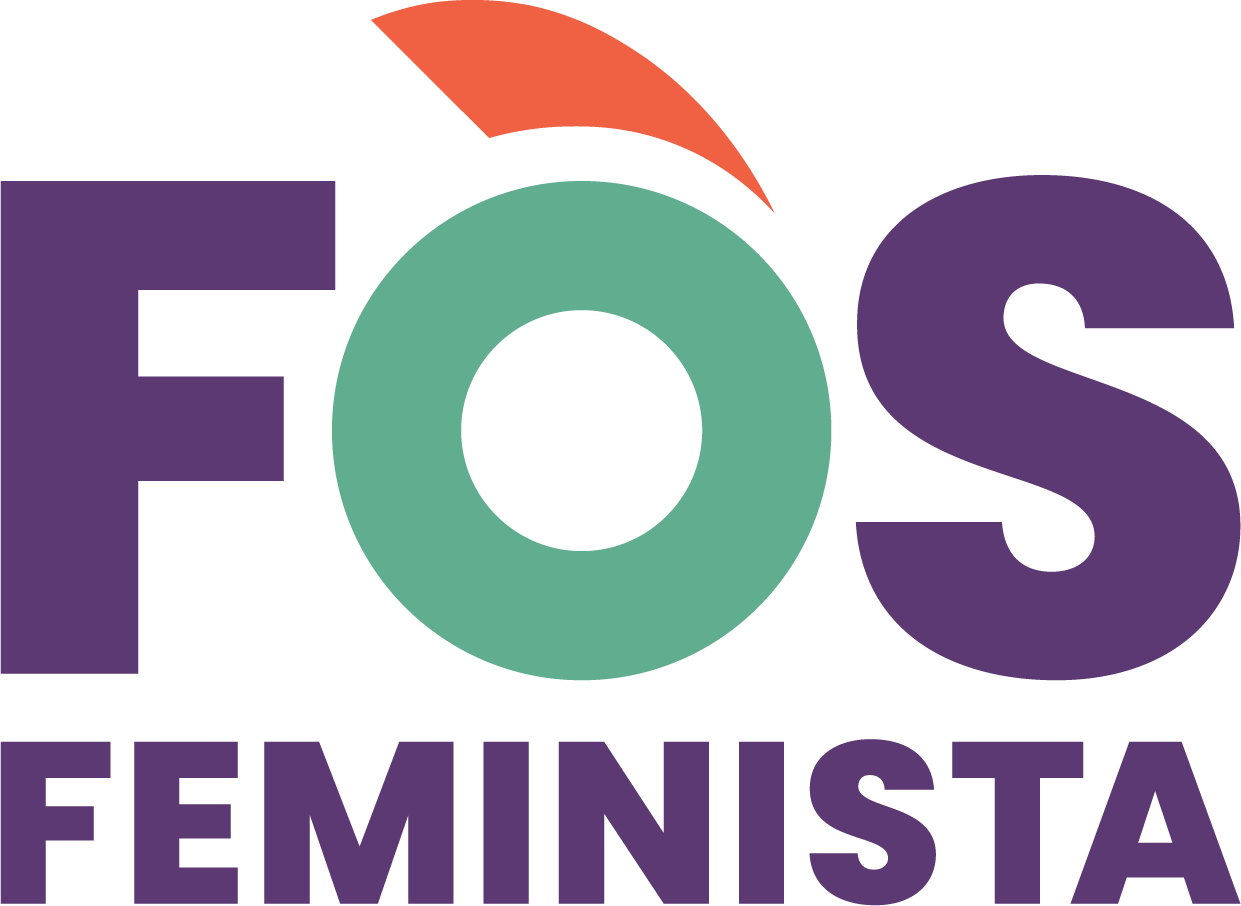
Rep. Barbara Lee and feminist activists outside of the U.S. Supreme Court.
Permanently repealing the Global Gag Rule is key to advancing abortion access in the U.S. and globally.
New York, NY — This week, a bipartisan group of lawmakers in both chambers of the U.S. Congress, including Representative Barbara Lee (D-CA-12), Representative Ami Bera (D-CA-06), Representative Jan Schakowsky (D-IL-09), Senator Jeanne Shaheen (D-NH), and Senator Lisa Murkowski (R-AK), re-introduced the Global Health, Empowerment and Rights (HER) Act, critical legislation that would permanently end the Global Gag Rule (GGR), which is a deadly U.S. foreign policy that denies U.S. global health assistance to any foreign nongovernmental organizations that provide, advocate for, counsel on, or refer for abortion as a method of terminating unwanted pregnancies.
As documented in a report Fòs Feminista released last year, “Chaos Continues: The 2021 Revocation of the Global Gag Rule and the Need for Permanent Repeal,” there was an alarming breakdown in communications between the U.S. government and relevant global health stakeholders following President Biden’s 2021 revocation of the GGR, one significant enough that some implementing partners did not even know the policy was revoked until the Fòs Feminista research team contacted them for an interview.
For decades, the GGR has been cyclically and temporarily revoked and reinstated with each incoming U.S. presidential administration based on party affiliation. This vicious cycle perpetuates global instability, creates irrevocable chaos in global health assistance, and is an attack on the health and rights of individuals all around the world.
In response to the reintroduction of the Global HER Act, Katherine (Kat) Olivera, Fòs Feminista’s Associate Director of U.S. Global Advocacy released the following statement:
“We applaud Representative Lee, Senator Shaheen, and Senator Murkowski on the reintroduction of the Global HER Act. Congressional legislation is the only way to permanently end this deadly policy. The GGR endangers lives around the world by putting the U.S. government in between a doctor and a patient. The policy also prevents access to basic healthcare services, including abortion care, maternal and child health care; HIV prevention, treatment, and care; nutrition services; and more. Constantly revoking and reinstating the GGR causes harm no matter which party holds the U.S. presidency.
“We will not stand by silently as lawmakers continue to endanger people all across the globe and play politics with the lives of women, young people, LGBTQI+ people, sex workers, and so many other impacted communities”.
Toyin Chukwudozie, Executive Director of Fòs Feminista partner organization Education as a Vaccine (EVA) based in Abuja, Nigeria, described the GGR’s impact on EVA:
“As a local organization, we invest a lot of time and other resources working with communities to break the different barriers and improve access to sexual and reproductive health information and services for women and girls, only to have services disrupted by abrupt funding withdrawal due to the GGR. We have seen this disruption cause so much negative impact on women, girls, and their families, and on our organizations and programs. The progress we are making is continuously threatened by this policy uncertainty. The GGR should be permanently repealed.”
Additionally, Jedidah Maina, Executive Director of Fòs Feminista partner organization Trust for Indigenous Culture and Health (TICAH) based in Nairobi, Kenya, described the GGR’s impact on TICAH:
“The Global Gag Rule led to the shutdown of health clinics that provide integrated services, including free services, for adolescent girls and women in low-income, rural and marginalized areas. Most of these facilities were the only ones in their region providing health care, which means when they closed, all health services, including HIV and malaria treatment, were disrupted. A policy like this is immoral and should never again see the light of day: It’s time to make this policy go away for good.”
####
Fòs Feminista is an international feminist alliance centered around sexual and reproductive health, rights, and justice for women, girls, and gender-diverse people. Together with more than 220 organizations in 40 countries worldwide, we engage in healthcare, education, and advocacy to advance our agenda. This includes providing sexual and reproductive health services and implementing community-based strategies that make sexual and reproductive healthcare more accessible to women, girls, and others at the margins. We also engage young people with comprehensive sexuality education and provide care to survivors of gender-based violence. We stand alongside our partners in the streets, in the courts, and in other advocacy spaces as an unapologetically feminist voice, resisting injustice and advocating for gender equality and reproductive rights locally and globally.






